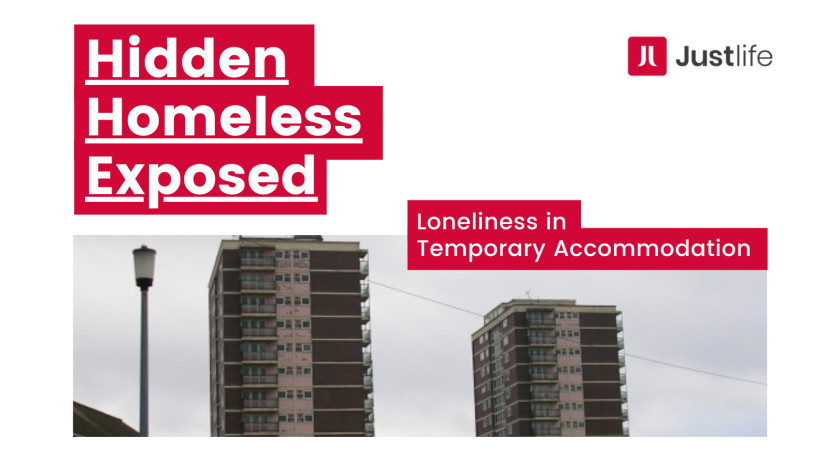


“I’m feeling scared, trapped, very trapped, very scared, you know. I don’t go out much you know, I don’t go to the local chemist with my prescription for tablets. I do, I feel trapped and scared and forgotten about. That’s what I feel.”
This quote from a resident interviewed for our recent research into the effects of the pandemic shows how acute the feelings of isolation and anxiety are within temporary housing, particularly within emergency accommodation (EA) and unsupported temporary accommodation (UTA). EA and UTA are private, short-stay accommodation in which the residents have very limited housing rights and a lot of housing insecurity.
As you can imagine, isolation and loneliness are very prevalent, and the conditions of such places make it no place to be quarantining. A common theme throughout most of the research done by Justlife is just how bad the conditions are in some properties, with pest problems, mould and disrepair common place.
We had one gentleman who compared his room to a prison cell and another said that he had got himself arrested just to avoid having to stay where he was.
At a time where we are all suffering from the impact of the pandemic, it’s not hard to imagine how tough it is for those who are living in a single room, cut-off from any friends or family, and with very little to occupy themselves with. Our upcoming Covid report gives a full picture of the situations people are living in daily, with loneliness being one of several key themes identified.
So why is loneliness such a concern? An annual report published by the government at the start of 2020 indicates that somewhere between 6% and 18% of the population often feel lonely and we are beginning to become more aware of the negative impact that loneliness can have on various aspects of our lives, including health, wellbeing, productivity, and self-esteem. Feeling lonely has been linked to early deaths and an increased risk of coronary heart disease, stroke, depression, cognitive decline and Alzheimers, and there’s even been studies that suggest that loneliness can reduce our life expectancy as much as either heavy smoking or obesity.
The effects of the pandemic have no doubt made this issue more acute for many of us, but it is even more pertinent to be talking about this now in the work that we and other homeless sector organisations do. Justlife, along with many other charities that support homeless people, has continued throughout the pandemic, maintaining what services we can, and doing whatever we can to ensure people are safe and looked after.
I think an understated part of supporting people is to just listen or provide ways for them to connect with others. Out of the 19 participants we interviewed, 12 felt they were being appropriately supported by Justlife. This may be positive but there is obvious room for improvement and I wonder if any of the 7 who felt that the support wasn’t enough was perhaps a symptom of feeling disconnected in some way? The majority of the 98,000 households living in temporary accommodation right now don’t have this kind of support.
Whilst it is true that all of us are now having to manage our imposed social isolation, I think about the people we spoke to in our research and it really stood out how, on the whole, they lacked many of the tools and day-to-day things, such as close family relationships, or even the internet, that most of us rely on to keep ourselves connected. Our research team discussed at length how the life of people in temporary accommodation was not dissimilar to a lockdown scenario, and in fact some interviewees commented that they had in effect been self-isolating prior, in some cases years prior, to the pandemic anyway.
One of my personal good news stories during the time of the first national lockdown was of a lady who was provided with a tablet that she used to connect with friends and her recovery fellowship, which made it possible for her to get clean from drugs. It is brilliant that Justlife has been able to obtain a significant number of Chromebooks and tablets for residents.
Justlife has joined the Connection Coalition initiated by the Jo Cox Foundation. This cross-sector network of organisations and charities are united in the belief that is possible to build a better future for everyone by building strong relationships and connected communities. My hope is that we can raise awareness of this issue and highlight the prevalence of isolation and loneliness we have seen in temporary accommodation.
Christmas is of course a time when we all want to come together with friends and family and feel connected. This year will no doubt be different to other years, but sadly I fear that it will be just the same for many people living a life of isolation in temporary accommodation.